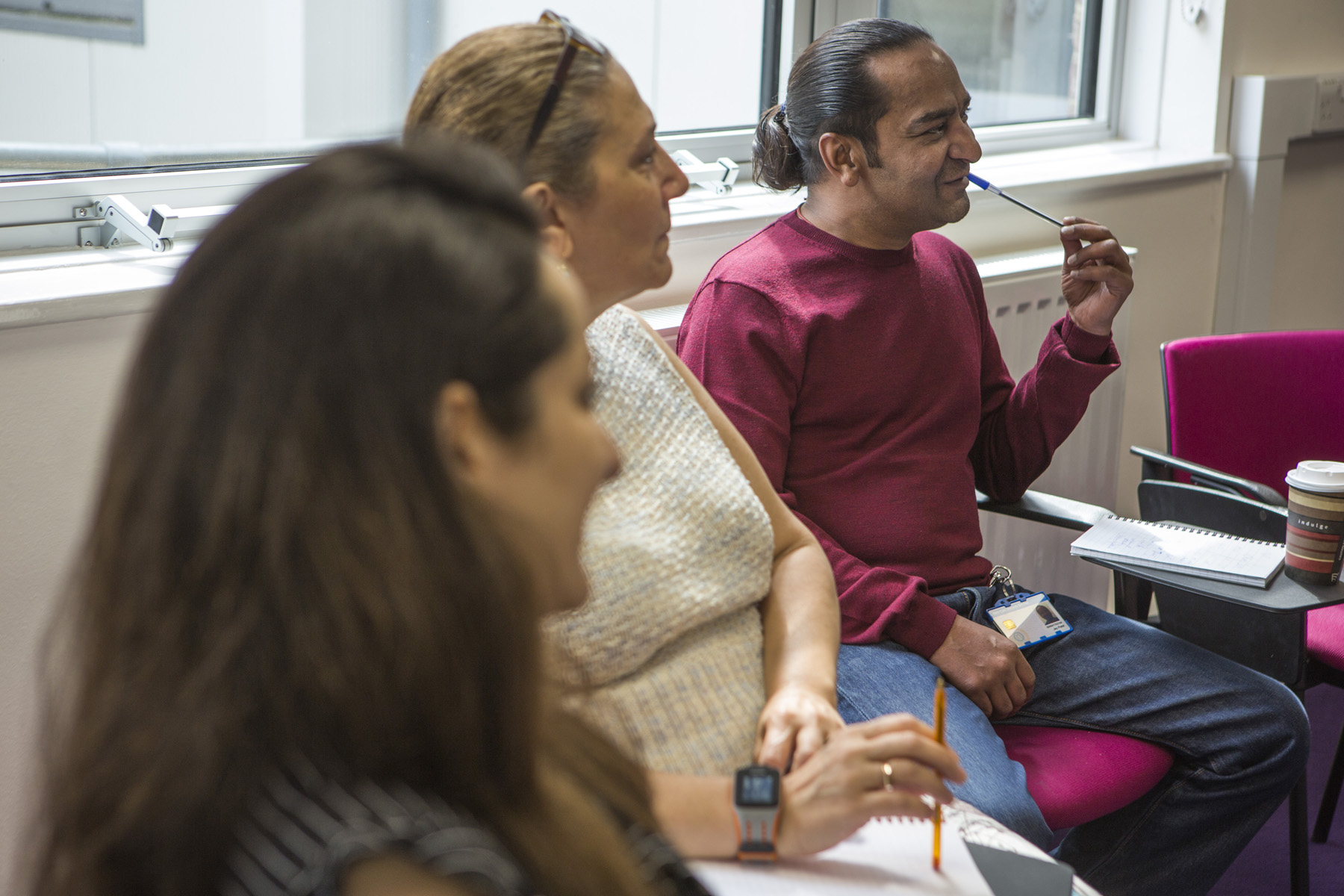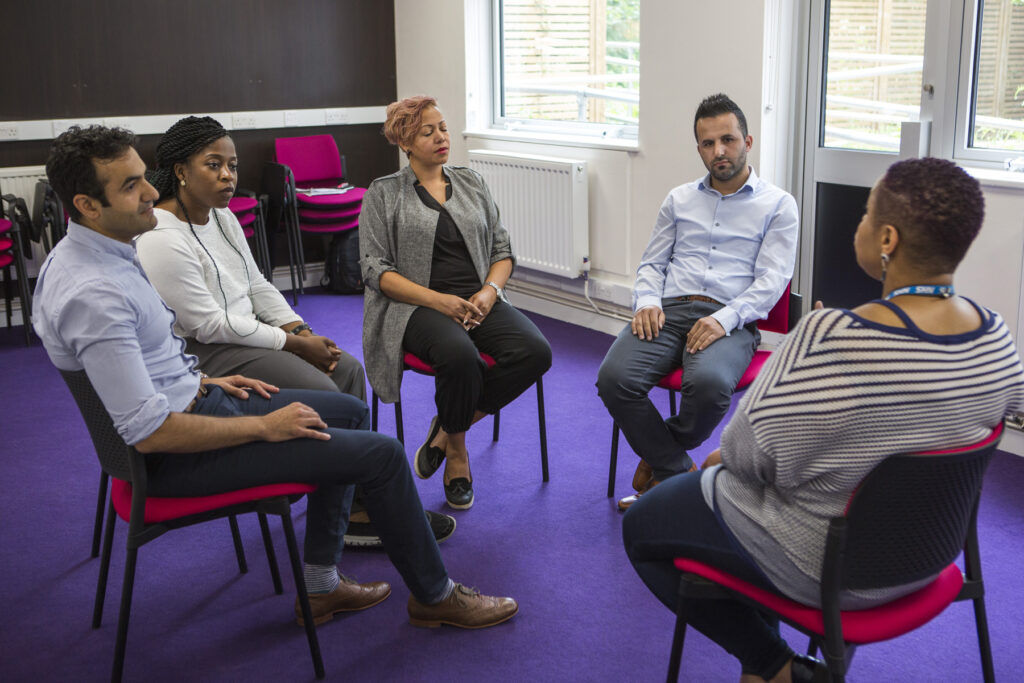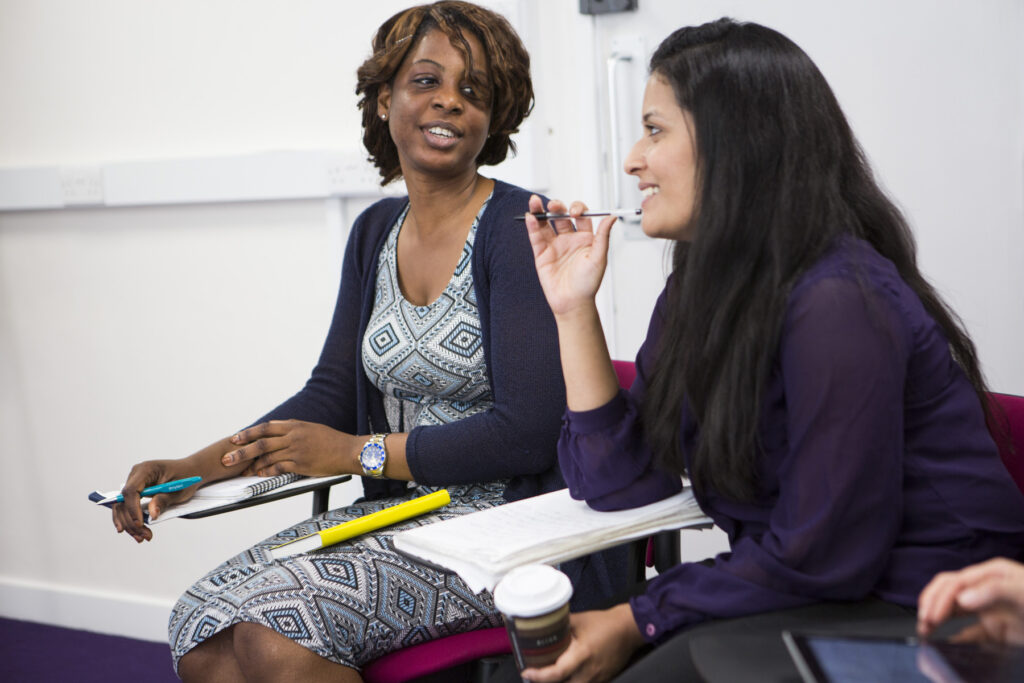
Patient and public involvement
Tell us your experiences so we can help improve our services. You can join spaces where you will be listened to and you can engage in interesting and rewarding opportunities.
Online engagement on our future
Let us know your views and help shape our future.

By becoming involved is your opportunity to let us know what, in your experience, you think has worked well and what you feel we could do differently.

Many organisations have a patient and public involvement group. However, in the nine years I have been in the NHS for my physical health problem and the five years of my mental health issue, it is only the Tavistock that first gave me the feeling of equality and acceptance and later established the feeling through my involvement.
A service user participant
How to get involved
Join the Trust wide forum
The forum aims to give people who have used our services a space to raise issues and bring suggestions to the Trust on how we can improve, and support patient involvement and feedback more meaningfully into our services. Topics discussed include the impact of Covid-19 on our services, face-to-face versus online therapy, relocation, and quality improvement and involvement.
The meeting is co-chaired by an ex-service user or carer (on a rotating basis each meeting) with the PPI team manager and includes ex-service user representation from clinical services across the Trust. Directors from our directorates attend on a rotating basis, and a non-executive director and governor are also invited to attend. We welcome topics for discussion at the forum from service users.
Take part in panel interviews
The Trust is committed to involving our service users, their families and carers in having a say in who we employ. In order to achieve this, the PPI team and experienced service user representatives provide training which has been co-produced with one of our service users. You in turn provide us with valuable insights from a non-Trust professional about how a candidate might ‘feel’ to a patient, rather than just the candidate’s ability to meet the criteria of the post.
The training has been well received, and feedback shows that it has empowered service users to develop transferable skills for external interviews and prepare for work opportunities. Feedback from both staff and those participating in the panels have been very positive.
You will be paid for your time, and be able to add the experience to your CV.
I really enjoyed the grading/marking part, especially when we all shared our own at the end and then added them up
A service user representative

Other ways to get involved
You can also provide feedback through the following means:
- Verbal comments, or written letters and emails
- Experience of survey questionnaires
- Small scale surveys
- Patient Advice Liaison Service (PALS) enquiries
- Attending focus groups
- Linking with national events
Contact us to find out more
Or write to us at;
PPI Office, Tavistock Centre, 120 Belsize Lane, London, NW3 5BA
